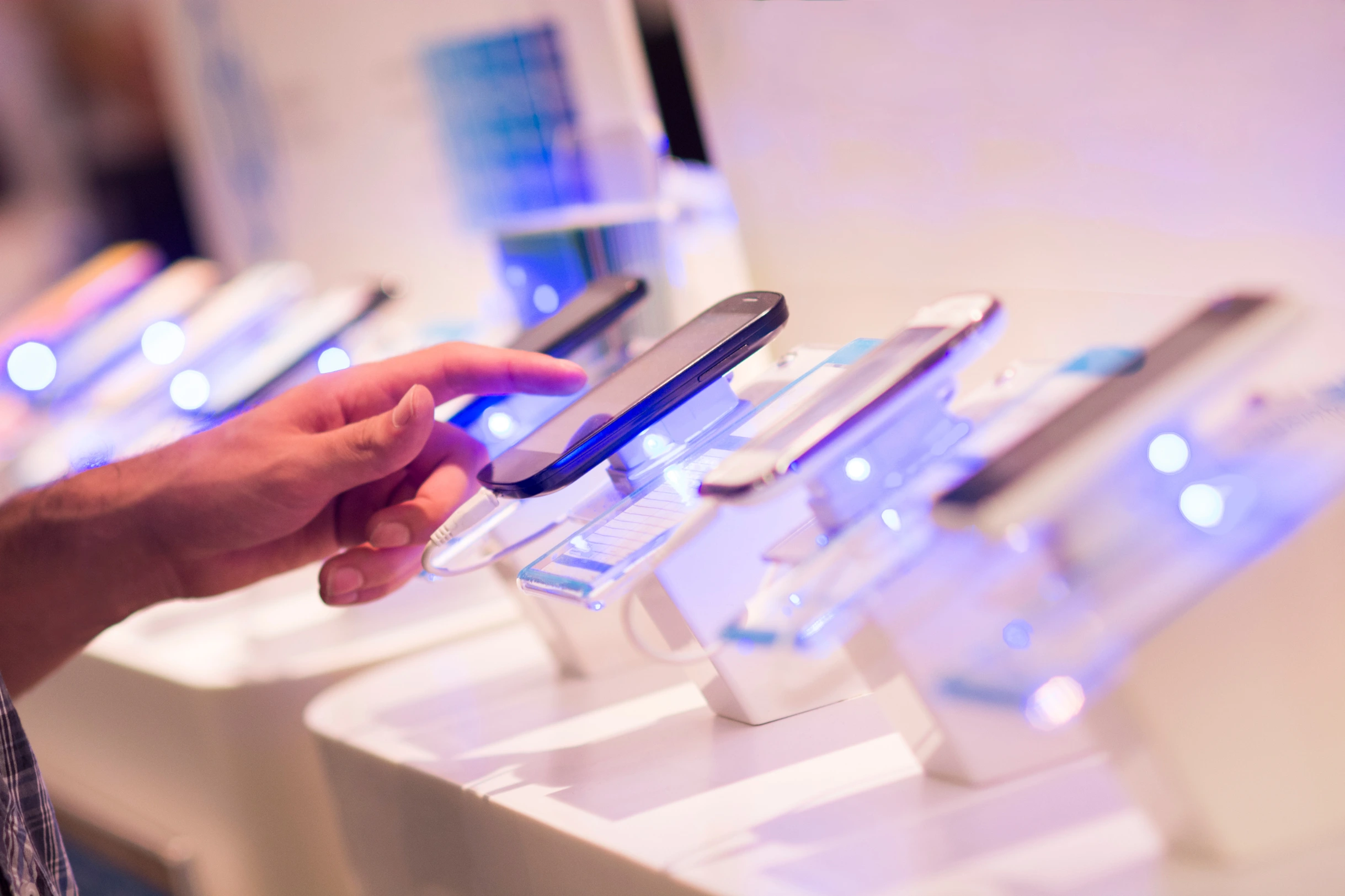The smartphone battle between Apple’s iPhone and Samsung’s Galaxy series continues to dominate the mobile market in 2025. With both tech giants pushing the boundaries of innovation, choosing between iOS and Android has never been more challenging. Whether you’re upgrading from an older device or switching ecosystems entirely, understanding the key differences between these flagship smartphones will help you make the smartest purchase decision for your needs and budget.
Design and Build Quality Comparison
iPhone’s Premium Craftsmanship
Apple’s 2025 iPhone lineup maintains the company’s signature premium build quality with aerospace-grade aluminum frames and Ceramic Shield glass. The seamless integration between hardware and software creates an exceptionally refined user experience. iPhone models consistently deliver superior durability ratings and maintain their resale value better than most Android competitors.
Samsung’s Innovative Display Technology
Samsung Galaxy devices showcase cutting-edge display technology with vibrant AMOLED screens, higher refresh rates, and exceptional brightness levels. The Galaxy S25 series features more customizable designs, including foldable options that Apple hasn’t yet matched. Samsung’s commitment to display innovation gives users more screen real estate and immersive viewing experiences.
Performance and Processing Power
Apple’s A-Series Chip Dominance
The latest iPhone models powered by Apple’s A18 Bionic chip continue to lead in single-core performance benchmarks. This translates to faster app launches, smoother gaming experiences, and better overall system responsiveness. Apple’s tight integration between hardware and software optimization ensures consistent performance across all iOS applications.
Samsung’s Snapdragon Excellence
Samsung Galaxy phones equipped with the latest Snapdragon processors deliver exceptional multitasking capabilities and superior graphics performance for gaming. Android’s flexibility allows power users to customize performance settings, while Samsung’s RAM management has significantly improved in recent generations.
Camera Systems and Photography Features
iPhone’s Computational Photography Leadership
Apple’s camera system excels in computational photography, delivering natural-looking photos with excellent color accuracy. The iPhone’s video recording capabilities remain industry-leading, with features like Cinematic Mode and ProRes recording that appeal to content creators. Night Mode and Portrait photography produce consistently reliable results across different lighting conditions.
Samsung’s Versatile Camera Hardware
Samsung Galaxy devices typically offer more camera versatility with ultra-wide lenses, telephoto zoom capabilities, and higher megapixel counts. The Galaxy cameras excel in bright lighting conditions and provide more manual control options for photography enthusiasts. Samsung’s Space Zoom technology offers impressive long-range photography capabilities.
Operating System Experience
iOS Simplicity and Security
iOS provides a streamlined, intuitive user interface that’s particularly appealing to users who prioritize simplicity and security. Apple’s walled garden approach ensures better app quality control and more consistent user experiences. Regular iOS updates are delivered simultaneously to all compatible devices, extending smartphone longevity.
Android Customization and Flexibility
Samsung’s One UI, built on Android, offers extensive customization options that let users personalize their smartphone experience. Android users enjoy more file management freedom, default app selection, and integration with Google services. The open ecosystem provides more app installation options and system-level modifications.
Battery Life and Charging Technology
iPhone’s Optimized Power Management
Despite typically smaller battery capacities, iPhones often deliver impressive battery life through superior power management optimization. Apple’s focus on efficiency means most users can easily get through a full day of usage. However, charging speeds lag behind Samsung’s fast-charging technology.
Samsung’s Fast Charging Innovation
Galaxy devices feature larger batteries and significantly faster charging speeds, including wireless charging and reverse wireless charging capabilities. Samsung’s adaptive battery technology learns usage patterns to optimize power consumption throughout the day.
Ecosystem Integration and Compatibility
Apple’s Seamless Device Ecosystem
iPhone users benefit from exceptional integration with other Apple devices like MacBooks, iPads, and Apple Watch. Features like Handoff, AirDrop, and Universal Clipboard create a cohesive ecosystem that’s hard to replicate with other brands.
Samsung’s Multi-Platform Flexibility
Samsung devices integrate well with Windows PCs, Google services, and a wide range of third-party accessories. The Galaxy ecosystem includes smartwatches, earbuds, and tablets that work together, though not as seamlessly as Apple’s offerings.
Pricing and Value Proposition
iPhone’s Premium Pricing Strategy
Apple maintains premium pricing across its iPhone lineup, but devices typically retain value better and receive longer software support. The iPhone SE offers a more budget-friendly entry point into the iOS ecosystem without compromising core features.
Samsung’s Diverse Price Range
Samsung offers smartphones across all price segments, from budget-friendly Galaxy A series to premium Galaxy S and Note models. This variety makes Samsung accessible to more consumers while still offering flagship features at competitive prices.
Conclusion
In the end, the choice between iPhone and Samsung Galaxy in 2025 comes down to personal priorities, price, and existing device ecosystem. The iPhone excels at simplicity, security, ecosystem integration, and long-term software support, making it excellent for customers who appreciate consistency and high build quality. Samsung Galaxy handsets provide greater customisation, display innovation, camera variety, and pricing freedom, attracting users seeking cutting-edge capabilities and personalization options.
When making this decision, take into account your current devices, preferred apps, and usage patterns. Both smartphones provide flagship-level experiences that will serve you well for years.
Frequently Asked Questions
Q: Which phone has better long-term software support?
A: Apple typically provides iOS updates for 5-6 years, while Samsung now offers 4-5 years of Android updates for flagship Galaxy devices.
Q: Is iPhone or Samsung better for gaming?
A: Both perform excellently for mobile gaming, but iPhones generally offer more consistent frame rates, while Samsung devices provide larger screens and higher refresh rates.
Q: Which ecosystem is easier to switch to?
A: Switching to iPhone from Android is generally easier due to Apple’s Move to iOS app, while Samsung Smart Switch handles transitions from iOS to Android effectively.
Q: Do iPhones or Samsung phones have better cameras?
A: Both excel in different areas – iPhones for video and natural colors, Samsung for versatility and zoom capabilities. The “better” choice depends on your photography priorities.
Q: Which phone offers better value for money?
A: Samsung typically offers more features per dollar, especially in mid-range segments, while iPhones provide better long-term value through extended software support.





